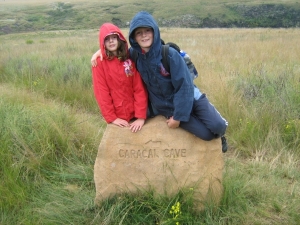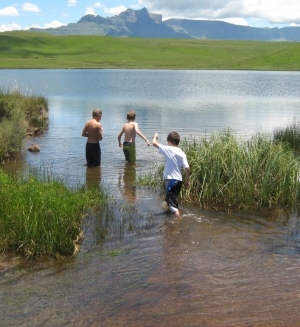Education | Outdoor education
 Outdoor education usually refers to organized learning that takes place in the outdoors. Outdoor education programs sometimes involve residential or journey-based experiences in which students participate in a variety of adventurous challenges in the form of outdoor activities such as hiking, climbing, canoeing, ropes courses and group games.
Outdoor education usually refers to organized learning that takes place in the outdoors. Outdoor education programs sometimes involve residential or journey-based experiences in which students participate in a variety of adventurous challenges in the form of outdoor activities such as hiking, climbing, canoeing, ropes courses and group games.
Outdoor education can be simply defined as experiential learning in, for, or about the outdoors. The term 'outdoor education', however, is used broadly to refer to a range of organized activities that take place in a variety of ways in predominantly outdoor environments. Common definitions of outdoor education are difficult to achieve because interpretations vary according to culture, philosophy, and local conditions.
Outdoor education is often referred to as synonymous with adventure education, adventure programming, and outdoor learning, outdoor school, adventure therapy, adventure recreation, adventure tourism, expeditionary learning, challenge education, experiential education, environmental education, Forest schools and wilderness education. Consensus about the meaning of these terms is also difficult to achieve. However, outdoor education often uses or draws upon these related elements and/or informs these areas. The hallmark of outdoor education is its focus on the "outdoor" side of this education; whereas adventure education would focus on the adventure side and environmental education would focus on environmental. Wilderness education involves expeditions into wilderness "where man is but a visitor." For more information, see Outdoor education definitions (Wikibooks).
 Some typical aims of outdoor education are to:
Some typical aims of outdoor education are to:
- learn how to overcome adversity
- enhance personal and social development
- develop a deeper relationship with nature.
Outdoor education spans the three domains of self, others, and the natural world. The relative emphasis of these three domains varies from one program to another. An outdoor education program can, for example, emphasize one (or more) of these aims to:
- teach outdoor survival skills
- improve problem solving skills
- reduce recidivism
- enhance teamwork
- develop leadership skills
- understand natural environments
- promote spirituality
There is much anecdotal evidence about benefits of outdoor education experiences; teachers, for example, often speak of the improvement they have in relationships with students following a trip. However, hard evidence showing that outdoor education has a demonstrable long-term effect on behaviour or educational achievement is harder to identify; this may be in part because of the difficulty involved in conducting studies which separate out the effects of outdoor education on meaningful outcomes.



